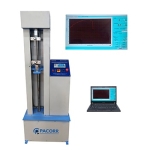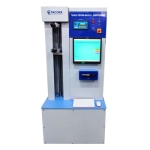Tensile Testing Machines are popularly used in different industries to evaluate the tensile strength or ability of a material to stretch to a limit without developing a crack. The machine brings innovative as well as user-friendly features that are apt for any industry. A tensile testing machine is a device used to measure the mechanical properties of materials, such as their strength, elongation, and modulus of elasticity. It is also known as a tensile tester, tensile strength tester, or tensometer.
| Aspect | Details |
|---|---|
| Website Reviewed | Pacorr.com |
| Focus | Tensile Testing Machine |
| Applications | Wide range across industries like packaging, polymers, textiles, and more. |
| Technology | Advanced, complying with international standards. |
| Customer Support | Excellent, including technical support and on-site services. |
| Certification | ISO 9001:2015/CE |
| Special Mention | Emphasis on precision, user-friendly designs, and R&D for product evolution. |
Tensile testing machine, also known as universal testing machines, play a pivotal role in determining the mechanical properties of materials under tension. Pacorr.com, a renowned manufacturer and supplier of lab testing instruments, offers a comprehensive range of testing machines designed to meet the quality assurance needs across various industries, including paper and packaging, plastics and polymers, PET bottles, textiles, and more.
What Is a Tensile Testing Machine?
A tensile testing machine is an essential laboratory instrument used to assess the tensile strength of materials. It measures parameters like load, elongation, and strain, providing vital data on a material's strength, elasticity, and ability to withstand forces without breaking.
Key Parameters Measured
- Load: The force applied to a material during the test.
- Elongation: The change in length of the material due to applied load.
- Strain: The deformation of a material relative to its original length.
These parameters help in evaluating the mechanical properties of materials, ensuring their suitability for specific applications.
The Working Principle
The machine operates by applying a uniaxial force to a specimen, measuring the force and the change in length of the material. This process helps in calculating various mechanical properties, such as yield strength, ultimate tensile strength, and ductility. The data is plotted to create curves that illustrate the material's behavior under stress, aiding in the material selection process for different industrial applications.
Why Choose Pacorr's Tensile Testing Machines?
Pacorr's tensile testing machines stand out due to their precision, compliance with international standards, and versatility across a wide range of applications. The company's commitment to excellence and innovation is evident in their product range, which is designed to meet the rigorous demands of quality assurance in modern industries.
Advanced Technology and R&D
Pacorr invests significantly in research and development, ensuring their testing instruments incorporate the latest technology and meet international test standards. This dedication to innovation is reflected in their product evolution, offering high-end technology and ease of use.
Comprehensive Customer Support
Choosing Pacorr means gaining access to world-class technical support, including online and offline assistance, on-site maintenance, and calibration services. Their emphasis on customer satisfaction and after-sales support makes them a reliable partner for quality testing needs.
Pacorr.com's tensile testing machine represent the intersection of precision engineering and user-centric design. By providing highly accurate measurements and complying with international standards, these machines are an invaluable tool for industries aiming to ensure the highest quality of their products. With Pacorr, businesses can expect not just a testing instrument but a comprehensive solution that includes exceptional customer service and technical support.
The tensile strength or pull strength of a material defines the capability of that specimen to elongate its formation until it breaks down. This feature further defines the behaviour of the sample when it is used in the production of other material or when it's used as a part of Machines or components.
They are almost part of every equipment and machine used in the production line industry. The manufacturer and designers of plastic, rubber and any material must ensure that the end product delivered to the industries have zero quality failures. One of the vital quality factors which need to be tested is the tensile strength of any material.
A material with poor elongation or pull strength can be deformed easily when it's pulled or stretched and result in product failure. Such materials are never accepted by other manufacturers and can be rejected for their cheap quality. These products are then bound to get sold at low prices because of their poor performance.
The tensile testing machine brings highly advanced and international standard based parts like load cell, crosshead, vice type specimen grips, electronics, and an accurate drive system. It is controlled by microprocessor-based software to measure test values and record testing parameters. The machine is designed as per globally acclaimed testing standards such as ASTM and ISO. The amount of pull force applied and the elongation of the specimen are recorded throughout the test that can be used later for comparative analysis. Evaluation of the tensile force required to elongate a test material to the point till it breaks permanently helps the designers and manufacturers predict the material performance when it will be implemented for their intended use.
Capacities provided: 50 Kgf/ 100 Kgf/ 250 Kgf/ 500 Kgf/ 1000 Kgf/ 2000 Kgf/ 3000 Kgf/ 4000 Kgf/ 5000 Kgf/
Test to be Performed: Compression Test / Top Load Test/ Push-Pull Test, Adhesion Test, Peel Bond Test, Seal Strength Test and Tensile Test
- Model Number: PCTTM-1
- Number of screws & mechanism used: Single screw mechanism driven through motor & gearbox
- Vertical clearance provided: 700 mm
- Exterior body paint: Powder coated
- Display screen: Microprocessor-based digital LCD screen
- Capacities provided: 50 Kgf/ 100 Kgf/ 250 Kgf/ 500 Kgf/ 1000 Kgf/ 2000 Kgf/ 3000 Kgf/ 4000 Kgf/ 5000 Kgf/
- Load cell type: ‘S Type Load-cell of reputed make and brand
- Least count for the load applied: 5/10/20/50/100/200/300/400/500 Grams
- Test result displayed on the screen: Load & Elongation values
- Least count for material elongation: 0.1 mm
- Test speed range: 40mm/min to 400 mm/min
- Load units used: Kgf
- Speed control: Dedicated AC Drive
- Motor for speed variations: Reputed make induction motor with dedicated gear box
- Test jaws: Vice Type (By default) else Please specify your applications at the time of order.
- Power Supply: 230 Volt AC, 50 Hz, Single Phase
- Paint: Powder Coating
- Floor standing model
- Unique and compact design features
- Fitted with Microprocessor based advance controller
- Single Column
- High accuracy in elongation
- Reputed make Induction motor with Dedicated Gear Box and Drive for speed variation and to maintain speed at high
- Over Load Protection
- Over Travel Protection
- Emergency Manual switch for stopping the machine
Tensile testing machines are versatile and can test a wide range of materials, including metals, plastics, polymers, textiles, rubber, and composites. The choice of machine and configuration depends on the material's properties and the specific requirements of the test.
The selection of a tensile testing machine should be based on several factors, including the type of material to be tested, the range of force required, the precision of measurement needed, and specific industry standards. Pacorr offers a variety of models to cater to different testing needs and can provide guidance on the most suitable option.
A tensile test measures the material's strength and ductility under tension, indicating how much a material can stretch before breaking. A compression test, on the other hand, determines the material's behavior under a compressive load, assessing its ability to withstand forces that push it together. While tensile tests pull the material apart, compression tests press it together.
Data from a tensile test is often plotted on a stress-strain curve, showing the relationship between the stress (force per unit area) applied to the material and the strain (deformation) it experiences. Key points on the curve, such as the yield strength, ultimate tensile strength, and elongation at break, provide valuable insights into the material's mechanical properties.
Yes, tensile testing machines are essential for quality control in manufacturing processes. They help ensure that materials and products meet specified mechanical property criteria, such as strength and elasticity, thereby guaranteeing that the final products are safe, reliable, and perform as expected.
Our Clients
A countless string of happy and satisfied customers vouch for our
excellence and complete quality control support.






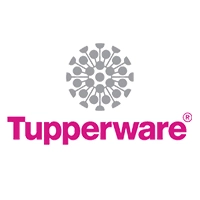



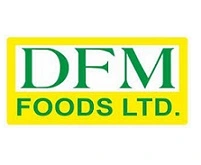


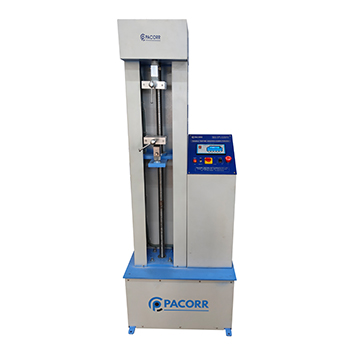
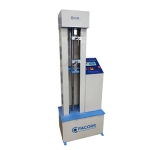
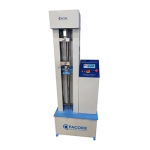



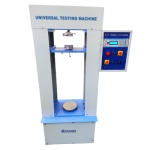
.jpg)
